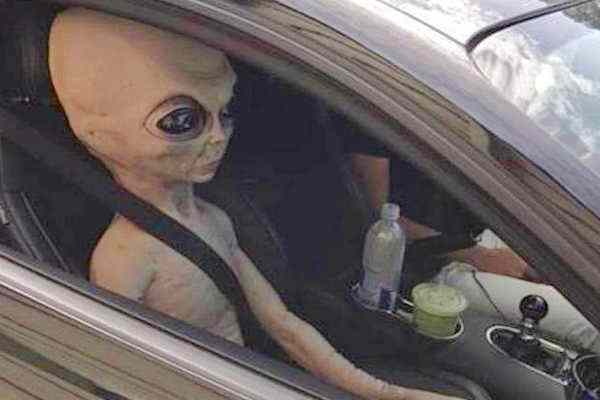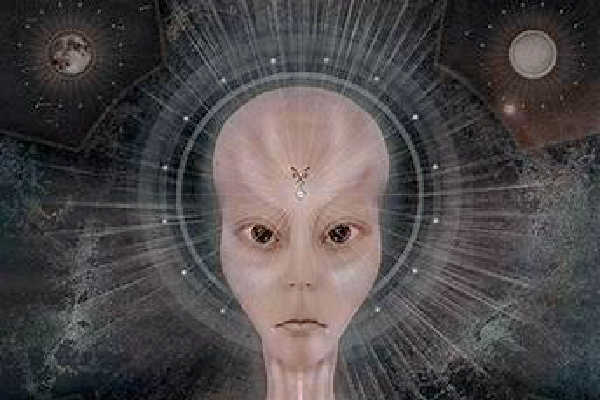Are we the only intelligent life in the universe? What if we aren’t alone? When selecting the best outcome and deciding between two choices, which do you pick? When both options have terrifying implications, do you seek a third option? Let’s explore these questions.
Are we the only life form or the only intelligent life form in the vastness of the universe? This question forces us to delve into the fabric of our fears.
Exploring Different Options
“Only two possibilities exist: either we are alone in the Universe, or we are not. Both are equally terrifying.” ― Arthur C. Clarke
There are several reasons this observation is so terrifying. First, if alien life exists, we need to know if it is friendly or hostile. Second, if we discover intelligent life, what will be the impact on society? How will religious believers respond to evidence of extraterrestrial life? If we cannot find other life in the universe, what does that actually mean? Are we divine and special, a mistake, or is the product of the natural evolutionary process?
One thing is for sure: exploring different options about this subject highlights our fear of death. Existential thought, contemplating our existence, comes early in life. Children ask questions about death at an early age. It’s an inborn curiosity, and it can be a natural catalyst to spark the inward quest. It prompts other questions. Who am I? How do I fit into the scheme of life on this planet?
The quest to find answers has led many to religion. They have answers that are just substitutes for the truth. Is selecting the best outcome impossible when all our choices have terrifying implications? Some believe our governments have the answers, but they are keeping them secret. They fear such knowledge would destabilize many societies.
Making a Tough Choice: Are We Alone or Not?

It is impossible to say with any reasonable degree of certainty that we are alone in the universe. To know the answer, we need to rule out all other places. Every Star Trek fan will tell you this would be an illogical conclusion.
If we are the only life in the universe, what are the implications? From a scientific standpoint, it means we are an outlier, an anomaly, or a mistake. Religions would relish this possibility. If we are alone in the universe, it affirms their assertions. It would be proof that we are the clone of a celestial being. Both possibilities are equally terrifying.
Many people cling to the mythologies of God. In this way, they can avoid exploring different options. They substitute myths for facts, so they sidestep, making a tough choice on philosophical issues like the one we are discussing. Stories of a make-believe supreme being are a diversion. They give people something to believe in so they don’t have to face such dilemmas.
Selecting the Best Outcome Considering the Advantages
Many religious legends teach us that an imaginary friend created the Earth and the Universe just for us. This makes us feel special, but for the wrong reasons, as it promotes a self-indulgent and self-centered perspective. It’s a comforting substitute. Here again, you are deciding between two choices: believe in mythology or not. It forces us to deal with the same dilemma posed by Mr. Clarke.
Whether or not you believe in God, the possibility of extraterrestrial life brings our existential fear (1) to the surface. It’s the realization of our eventual demise. It’s a philosophical position leading to the meaninglessness or absurdity of life. (2) Religion has a substitute for this as well. They call it the afterlife.
There is no doubt that the discovery of extraterrestrial life would likely cause a decline in religious membership. Pope Francis’s comments in May 2014 about baptizing Martins, if they landed, was an attempt to reduce the impact of such a discovery. He was preparing the Church for the inevitable discovery of life in the universe. (3) To find any type of life would mean that humankind isn’t the only game in the universe.
We don’t need contact with intelligent life forms to crumble the tower of religious babble. Even proof of microscopic life would be a serious problem for religions. Exploring different options is a scary proposition for religion. They don’t want you to push boundaries that would erode their control.
The discovery of extraterrestrial life could lead to mass hysteria, as highlighted by recent studies (4). Polls show that 25% or one in four people in the USA would suffer significant emotional distress over such a discovery. A good example is the radio program of Orson Wells in 1930. Even though he provided a disclaimer that the story was fictional, a large number of people believed it to be real. As a result, they took drastic measures in response to the program. People called the police, barricading themselves in fall-out shelters, etc. (5)
What if We Are Not Alone in the Universe?
Perhaps you think we are likely not alone because of the sheer number of planets in the universe that could support life. There is a great deal of scientific evidence supporting this premise. You aren’t selecting the best outcome; you are selecting the most probable outcome regardless of the consequences.
There is more proof to support the probability of alien visitation than a supreme being. The chance that other life forms exist in the multiverse is greater than the likelihood that we are alone.
The discussion of probabilities brings us back to the original dilemma: what if there are only two choices? Contemplating this dilemma can be the catalyst for some serious inner work. Instead of hiding from our existential fear, we can use it to understand our psyche.
Astrobiology is the field of study exploring different options about extraterrestrial life. It seeks to answer questions about (1) How does life begin? How does it evolve and become intelligent? (2) Does life exist somewhere else in the universe? (3) How do pollution and climate change affect the future of life on Earth?
SETI is an organization attempting to answer these questions. They adopted a formula created by the scientist Frank Drake. The Drake equation (1961) is a probability theorem to calculate the possibility of finding life. (6)
Here’s the Drake equation:

N = the number of civilizations in our galaxy in which communication might be possible (i.e., which are on our current, past light cone). R = the average rate of star formation in our galaxy:
fp = the fraction of those stars that have planets.
ne = the average number of planets that might support life per star that has planets.
fl = the fraction of planets that could support life that develops life at some point.
fi = the fraction of planets with life that actually go on to develop intelligent life (civilizations).
fc = the fraction of civilizations that develop technologies that release detectable signs.
L = the length of time for which such civilizations release detectable signals into space.
The answer to this equation is there are between 1000 and 100,000,000 planets with civilizations in the Milky Way Galaxy. Given this answer, are you sure there are only two choices? It would indicate one outcome is more likely than the other.
When Deciding Between Two Choices: Which Would You Select?
Is there a third possibility? Can we decide not to choose but hold both options as potential realities? This position leaves us open to the potential of these possibilities without committing to either. Does this third position enable us to contemplate the two prospects with less fear and dread?
Exploring different options helps us avoid the false dilemma fallacy. Some call it the either-or-or fallacy or the black-and-white fallacy. This argument gives only two options when there are other choices. When dealing with the unknown, it’s an excellent strategy to consider all the possibilities.
“After I give lectures—on almost any subject—I often am asked, Do you believe in UFOs? I’m always struck by how the question is phrased, the suggestion that this is a matter of belief and not of evidence. I’m almost never asked, How good is the evidence that UFOs are alien spaceships?” ― Carl Sagan, The Demon-Haunted World: Science as a Candle in the Dark
Considering and Exploring Different Options for Life
“People think that alien spaceships would be solid and made of metal and have lights all over them and move slowly through the sky because that is how we would build a spaceship if we were able to build one that big. But aliens, if they exist, would probably be very different from us. They might look like big slugs, or be flat like reflections. Or they might be bigger than planets. Or they might not have bodies at all. They might just be information, like in a computer, and their spaceships might look like clouds, or be made up of unconnected objects like dust or leaves.” ― Mark Haddon, The Curious Incident Of The Dog In The Night-Time
Perhaps we need to broaden the scope of what we consider life, or how we gauge what is intelligent life. Other life forms may have attempted to contact us, but we haven’t recognized it.
In Conclusion
This discussion is food for thought and contemplation. If we put off making a tough choice like the one in this dilemma, in a way, that is a choice as well. Does deciding between two choices give us any advantage over those who do not decide? Yes, exploring different options and considering the advantages and disadvantages is important.
The act of deciding sets the stage for a healthy, skeptical mindset. It helps you meet and solve other problems. So, whether or not there is life in the universe is more than a philosophical diversion.
References
(1) Existential Crisis.
(2) Absurdism.
(3) For Pope Francis, It’s About More than Martians.
(4) How Will We React to the Discovery of Extraterrestrial Life?
(5) Orson Welles Induces Mass Hysteria through Radio Broadcast “The War of the Worlds.”
(6) Frank Drake and the Drake Equation.
